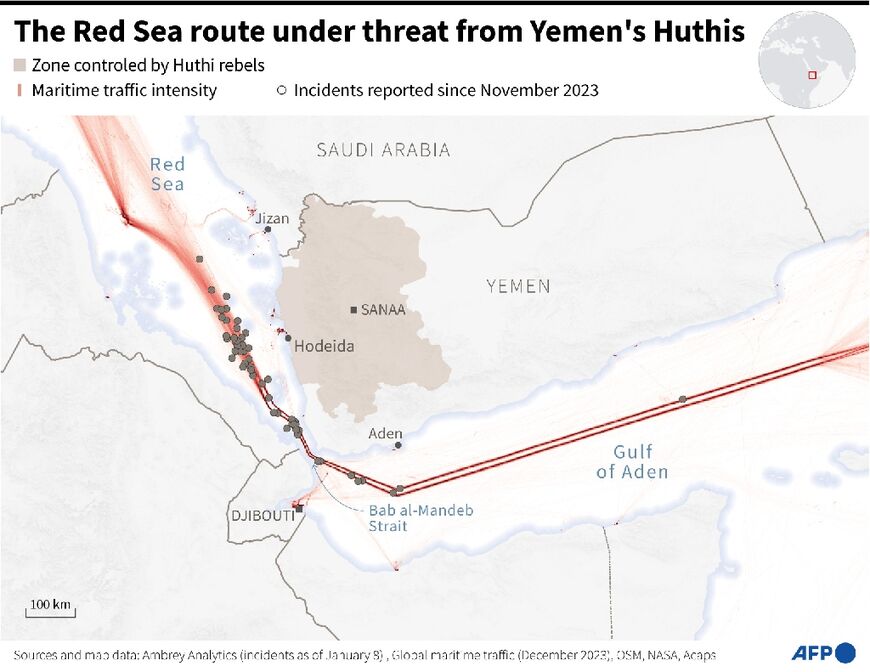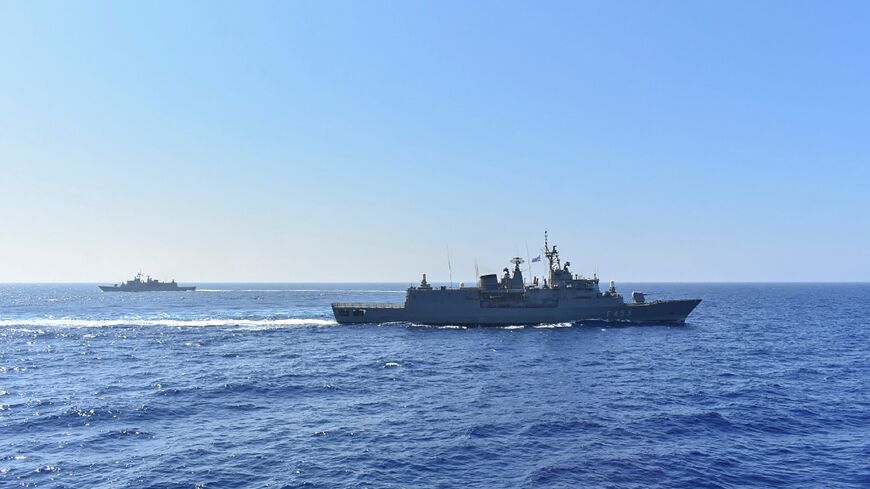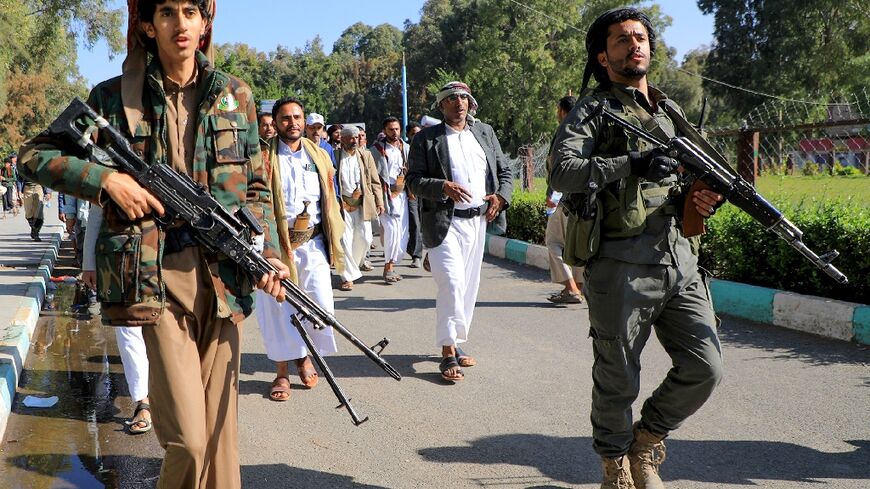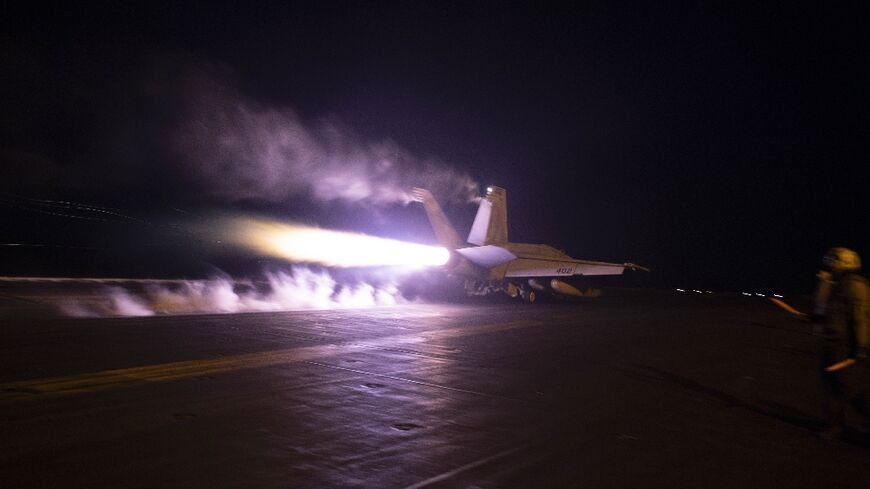UK, US forces repel 'largest attack' yet by Huthis in Red Sea
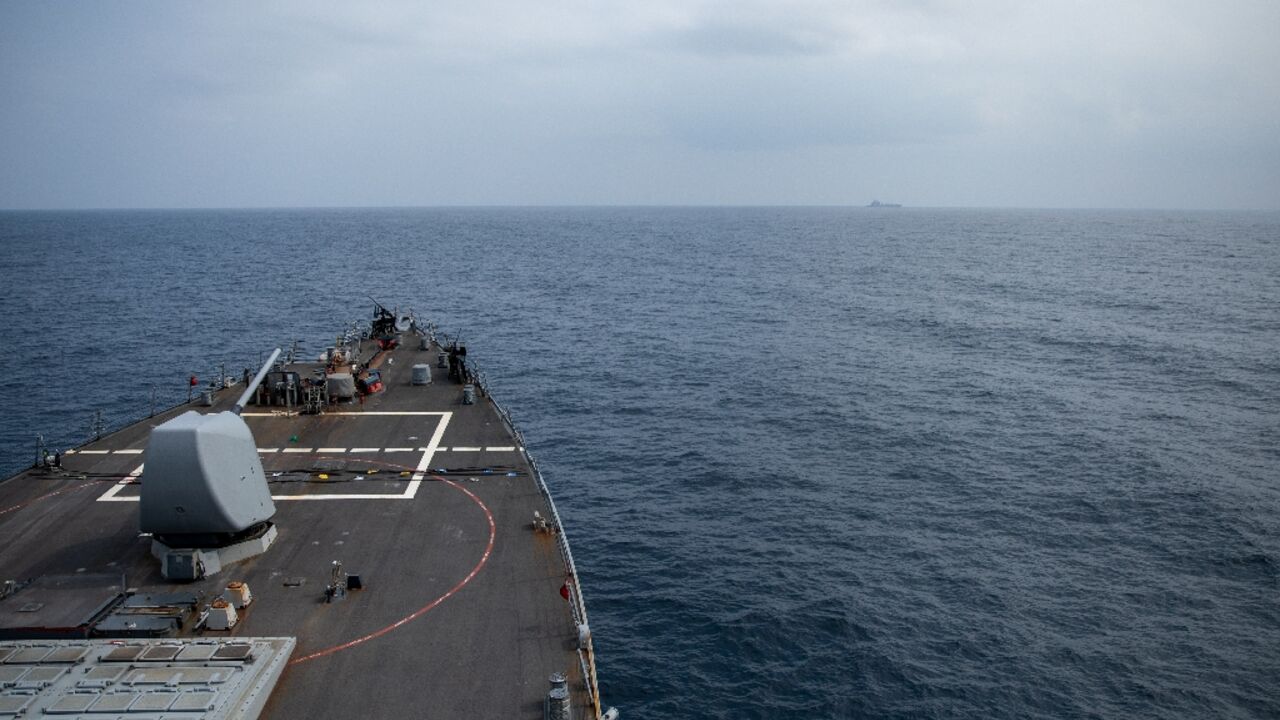
US and UK forces have shot down more than 20 drones and missiles over the Red Sea launched by Yemen's Huthis, in what London branded Wednesday the "largest attack" yet by the Iran-backed rebels.
The Western allies' warships and planes took out 18 drones and three missiles in their latest Red Sea military intervention on Tuesday, the US military said.
The Huthis later said they had fired a "large number" of missiles and drones at a US ship, without giving details of timing and location.
HMS Diamond, a British destroyer, intervened with "her guns and Sea Viper missiles" as drones were "heading for her and commercial shipping in the area", UK Defence Secretary Grant Shapps said.
It comes a week after 12 nations led by the United States warned the Huthis of consequences unless they immediately halted firing on commercial vessels in the busy international shipping corridor.
The Huthis say they are targeting Israeli-linked vessels in support of Palestinians in Gaza, where Israel is battling militant group Hamas.
"Overnight, HMS Diamond, along with US warships, successfully repelled the largest attack from the Iranian-backed Huthis in the Red Sea to date," Shapps said in a statement.
Shapps later said on Sky News that there was "no doubt at all Iran is guiding what is happening there in the Red Sea", providing Huthis with equipment and intelligence to enable the attacks.
"Enough is enough," said Shapps.
"We must be clear with the Huthis that this has to stop and that is my simple message to them today: Watch this space."
- 'Complex attack' -
The US Central Command (CENTCOM) said the Huthis had launched "a complex attack of Iranian designed one-way attack UAVs", as well as firing anti-ship cruise missiles and an anti-ship ballistic missile from Huthi-controlled areas of Yemen.
They were downed by a combination of F/A-18 warplanes, operating from the USS Dwight D. Eisenhower aircraft carrier, three American destroyers and the British naval vessel, CENTCOM said.
Huthi military spokesman Yahya Saree said "the naval forces, the missile force, and the unmanned air force of the Yemeni armed forces carried out a joint military operation with a large number of ballistic and naval missiles and drones".
The attack targeted a US ship that was "providing support" to Israel during its war against Hamas, he said in a statement on X, formerly Twitter.
The incident is the latest since the US set up a multinational naval task force last month to protect Red Sea shipping from Huthi attacks, which are endangering a transit route that carries up to 12 percent of global trade.
CENTCOM said US forces shot down a drone launched from Yemen over the weekend, while Vice Admiral Brad Cooper said the Huthis had launched an explosives-laden sea drone into shipping lanes last week -- the first time they had used such a weapon in the current conflict.
The Huthis -- who control much of Yemen -- are part of the "axis of resistance" of groups arrayed against Israel.
- Armed groups -
The latest round of the Israel-Hamas conflict began when the Palestinian militant group Hamas carried out a shock cross-border attack from Gaza on October 7 that killed about 1,140 people, according to an AFP tally based on Israeli figures.
Following the attack, the United States rushed military aid to Israel, which has carried out a relentless campaign in Gaza that has killed at least 23,357 people, according to the Hamas-run territory's health ministry.
Those deaths have sparked widespread anger in the Middle East and provided an impetus for attacks by armed groups across the region that are opposed to Israel.
US forces in Iraq and Syria have also repeatedly come under fire from drone and rocket attacks that Washington says are being carried out by Iran-backed armed groups.
Last week, the United States carried out a strike in Baghdad that killed a pro-Iran commander who it said was involved in attacks on American forces -- a move that infuriated the Iraqi government.
The violence in Iraq and Syria and the continued attacks by the Huthis have raised fears of a broader regional conflict directly involving Iran -- a worst-case scenario that Washington is desperately seeking to avoid.


